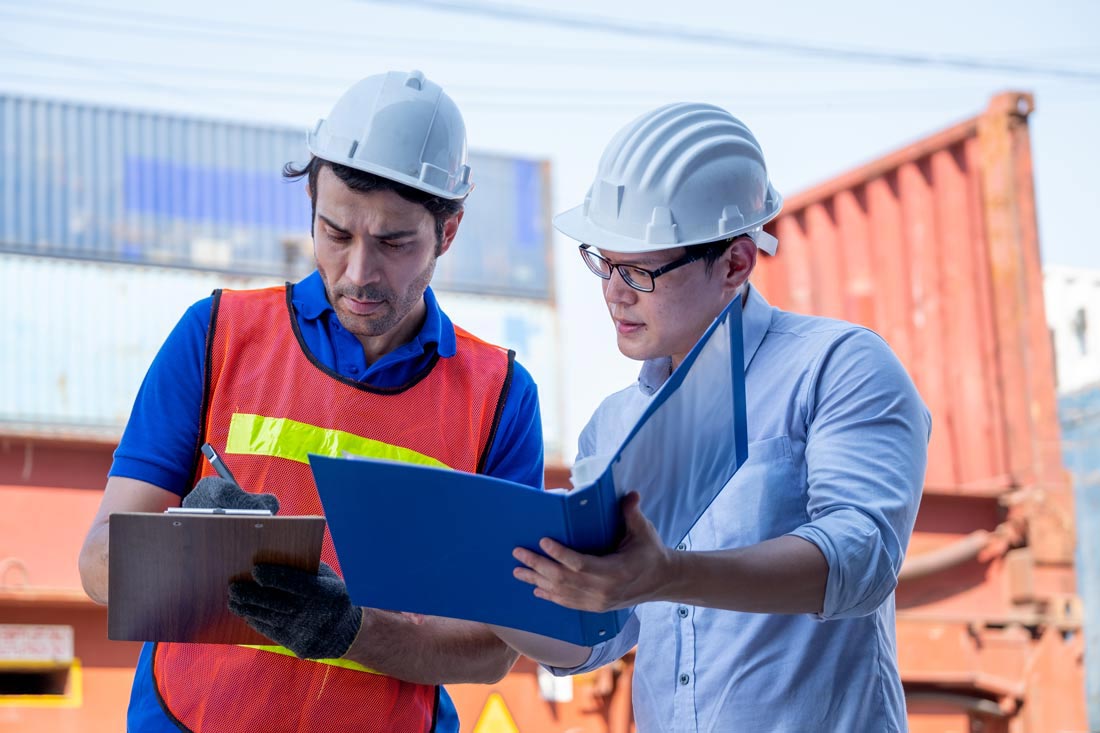
5 Most Exciting IT Careers in Terminal Operations
For over two years, the COVID pandemic has tested national resilience. Greater unemployment across industries in the public and private sectors, along with labor shortages, have reshaped the economy and shifted hiring practices.
As many as 4.3 million employees in America have quit in search of more satisfying and fulfilling job prospects during the “Great Resignation.” Surviving and thriving has meant finding the right fit in a field and position with the potential for growth.
Despite this context, job seekers in Information Technology (IT) have a lot to be excited about in the terminal operations industry. Below, we’ll detail five rewarding careers in terminal operations IT professionals should consider.
Why Should an IT Professional Consider a Career in Terminal Operations?
Whether you are an entry-level or seasoned IT professional, terminal operations offer unique opportunities to build multiple high-demand skills and solve complex but rewarding supply chain challenges. There are two major ways in which working in the terminal operations IT environment differs from the typical IT desk office environment and from other non-IT environments:
Unique Logistics Management Technology: Terminal operations and logistics rely on advanced technology to maintain smooth operations across the supply chain. Some of these systems include:
- A Terminal Operation System (TOS) provides visibility into logistics with easy-to-use graphical tools and advanced reporting capabilities.
- Gate Optical Character Recognition (OCR) technology automates logistics and reduces the turnaround time of container inspection across the supply chain.
Unique Problem-Solving Opportunities: Since most issues in terminal operations are not immediately fixable with textbook solutions, workers in the field have the opportunity to think more creatively and work hand-in-hand with a diverse set of collaborators (terminal management, operations, etc.) and in a variety of contexts throughout the terminal.
Terminal operations positions offer opportunities that fall outside the ordinary churn of most other careers in and adjacent to IT. There is nothing else like this field in the corporate world.

Exciting IT Careers in Terminal Operations
Another benefit of working in terminal operations is that there are plenty of exciting and lucrative paths a motivated and skilled IT job seeker can pursue. All IT professionals within terminal operations must be uniquely apt to serve as first responders to any issues encountered during the logistics lifecycle.
If this description excites you, one of these five roles could be your next step.
Field Operations (IT Engineer)
IT engineer roles in terminal operations range from entry-level to senior positions. At all levels, field services specialists can expect to wear multiple hats and get actively involved in:
- Supporting internal and external IT end-users.
- Deploying new or upgraded tools and IT assets to clients.
- Devising solutions to technological issues while managing risk.
Furthermore, an IT engineer is expected to have a deep understanding of and familiarity with the following:
- Product and service delivery
- Best use of industry-standard technologies
- One or more operating systems (i.e., Windows, Linux, macOS)
- Microsoft Office suite
- Hardware and software installation
- IT infrastructure, ranging from LANs to wireless networks and fiber cabling
- Equipment installation, maintenance, and repair
An IT engineer within terminal operations also has a range of responsibilities ranging from responding to end-user requests of varying complexity to conducting technical site assessments and liaising with customers on technical issues.
Beyond the hands-on technical skills, an IT engineer has the opportunity to oversee facilities, manage inventory and participate in developing technical support policies.
Cybersecurity (Field Services Technician)
When a suspicious email or malicious-looking website is sent to a user, field services technicians specializing in cybersecurity typically come to the rescue.
The role of a cybersecurity field service technician is to:
- Inform users of best practices for cybersecurity, preventive and reactive.
- Address pressing IT security questions or concerns – short- or long-term.
Essentially, cybersecurity field service technicians are the eyes and ears of the terminal operations crews when it comes to IT security. They build on the work of training specialists, reinforcing lessons taught to end-users and troubleshooting security issues in real-time.
For example, cybersecurity field service technicians are instrumental in advising terminal operations management about security vulnerabilities, such as how using plug-and-play flash drives multiple times to transfer operations-critical data can lead to a data breach.
Developers and Engineers (Platform Engineer)
Platform engineers help optimize terminal operations systems, ensuring streamlined communication and data transfer across systems. The work performed by developers and engineers will vary with the type of system in use. Some systems depend on real-time data feeds, whereas others are more transactional. Platform engineers or developers also help streamline transitions from legacy systems to updated, cloud-based infrastructure.
There is crossover and overlap between engineer and developer roles, and the names are often used interchangeably. In any case, it’s a dynamic career path for any enterprise IT professional.
Pursuing a career as a platform engineer or developer presents a unique opportunity to build sophisticated platforms that can operate much faster and more efficiently than traditional ones.

Field Services – Software and Customer Feedback
For support and developer roles to function efficiently, field services professionals need to document service tickets that detail specific issues encountered by users. It’s important that these tickets accurately represent users’ issues. For that to happen, the systems governing ticket submission and management need to be well-designed and updated regularly.
A field services professional specializing in creating and utilizing customer feedback software has the opportunity to build and test systems for bugs and report on features that work less than optimally. It’s a stimulating role for applicants inclined toward work in user experience (UX).
Field Services – Training Roles
Another important role in field services is the training of new team members. Onboarding and training new team members is instrumental to standardizing terminal operations processes and helping lower the steep learning curve. It makes all other functions operate seamlessly.
In some cases, this is a distinct position outside the other four noted above. In others, an IT engineer, field services technician, or platform engineer may step into a training specialist role.
Training is a critical functionality that every terminal operations organization needs to cover. That makes this career path a valued role for the right applicant.
The Future of Terminal Operations IT Careers
Increased automation and adoption of technology mean the terminal industry must continue to provide the tech support required to operate a terminal. With some limitations in remote support capabilities, there is still a need for on-site support to address technical issues as they arise at terminals. Future development will likely incorporate cloud solutions and a SaaS model for improved efficiency.
Technological systems supporting terminal operations have come a long way, and there is still advancement on the horizon.
Tideworks is positioned to meet the growing needs of terminal operations, leveraging IT to improve visibility and performance across the industry. A big part of that growth will be integrating AI and robotics skill sets into the field of terminal operations.
To learn about how you can get involved, check out our job listings.
